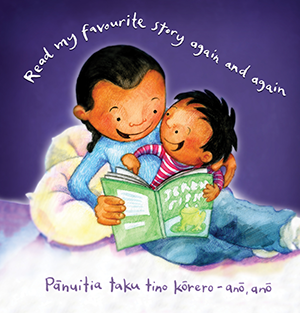
Bedtime
Children don't sleep as much, or as deeply, as they get older. Whānau need to be aware of this and set up bedtime routines.
As children get older, they may not need as much sleep or sleep as deeply as they used to. As a result, they can be more easily disturbed by the noises and movement.
Ask whānau:
- How much sleep is your tamaiti getting each night?
- How do you know they’ve had enough sleep?
- What’s bedtime like for them and for you?
- How do they tell you they’re tired and ready for sleep?
- How can you tell that they’re not ready for sleep?
If a sleep routine has changed, it will be useful to try to work out what happened to disturb it.
Ask whānau:
- What’s going on in the household that might be affecting sleep patterns?
- How do you think you can help your tamaiti get back to, or establish, a calm bedtime routine?
- What are some pleasant things you could do with your tamaiti to help them feel good about bedtime?
- Some people find bath time, reading a book, singing favourite songs or snuggling down with a special toy works for them. Do those ideas appeal to you?
During this stage, whānau may want to move their tamaiti out of a cot and introduce them to a bed. It’s a good idea to do this when there isn’t too much other disruption going on, like moving house or the arrival of a new pēpi in the whānau.
Helpful resources for whānau
-

Sleep
Whānau Āwhina Plunket
Learn about about sleep and sleep cycles, night waking and bedtime routines for toddlers on these pages from Whānau Āwhina Plunket.
-
Sleep needs for young children
Ministry of Health
Guidance on how much sleep, including naps, children need and how to improve their sleep habits.
-
Moving from a cot to a bed
Ministry of Health
There’s no set age at which you should move your child from a cot to a bed, but many children are ready between 18 months and 2 years of age.
-
Transitions in sleep routines
BabyCentre UK
A video from the NHS on the UK BabyCentre website on introducing sleeping in a big bed.











